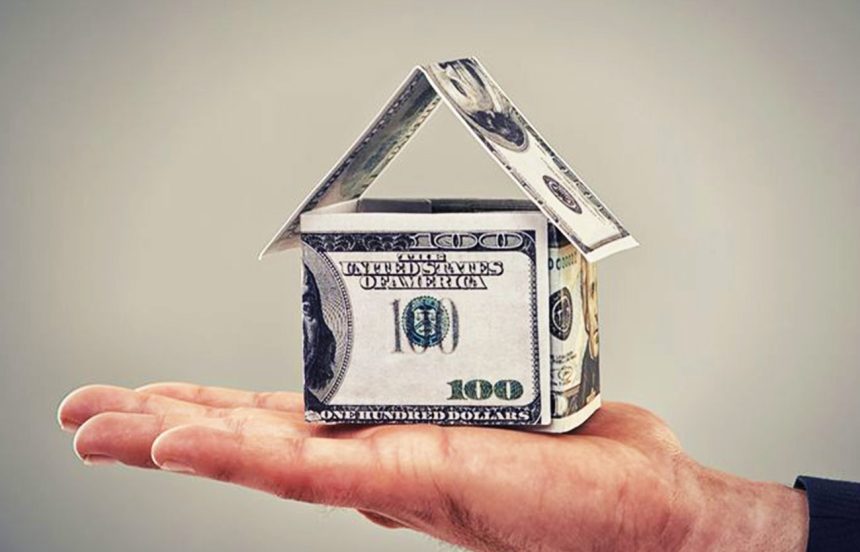Homeowners frequently embark on major remodeling projects with the expectation of upgrading their residences and boosting their sale price. However, the reality is that not all renovations guarantee a significant return on investment.
In many cases, upgrades may not pay for themselves in terms of increased property value. To make informed decisions about renovations and ensure a successful outcome, it’s essential to renovate strategically and focus on projects that genuinely add value to your property. In this article, we will explore the factors to consider when planning renovations and identify which projects are more likely to yield a favorable return on investment.
Cosmetic Enhancements
Cosmetic renovations focus on improving the visual appeal of a property without making major structural changes. These projects are typically more affordable and less time-consuming, making them popular choices for homeowners looking to freshen up their living spaces.
Some common cosmetic enhancements include repainting walls, updating flooring, installing new fixtures and hardware, and upgrading lighting. These improvements can significantly improve the overall aesthetics of a home, making it more appealing to potential buyers and increasing its market value.
For real estate investors, cosmetic enhancements are often a strategic choice to improve the attractiveness of a property and maximize its potential resale value. Investors recognize that small changes can have a big impact on the perceived value of a home, making it more marketable and allowing for higher asking prices.
Kitchen and Bathroom Remodels
Kitchen and bathroom renovations are among the most popular and lucrative home improvement projects. These spaces are essential to everyday living and are often major selling points for potential buyers.
Modernizing kitchen appliances, upgrading countertops, and installing new cabinetry can transform a dated kitchen into a contemporary and functional space. Similarly, bathroom remodels that include new fixtures, updated tiling, and improved storage can significantly enhance a home’s value.
Both homeowners and investors recognize the value of kitchen and bathroom remodels. Homeowners seek to create functional and stylish spaces to enjoy, while investors view these renovations as key to attracting tenants or buyers willing to pay a premium for upgraded amenities.
Structural Upgrades
Structural upgrades involve significant changes to a property’s layout or construction, such as room additions, removing walls to create open floor plans, or adding a deck or patio. These renovations can have a substantial impact on a home’s value, but they also require careful planning and a higher investment.
For homeowners, structural upgrades are often driven by their desire to tailor the space to their specific needs and lifestyle. These renovations can provide long-term benefits and improve the overall functionality of the home, making it a more comfortable living space.
On the other hand, real estate investors approach structural upgrades with a focus on maximizing the return on investment. Investors carefully assess the potential increase in property value and rental income to determine whether the cost of the renovation is justified.
Energy-Efficient Improvements
Energy-efficient renovations have become increasingly popular as homeowners and investors alike prioritize sustainability and cost savings. These upgrades may include installing solar panels, upgrading insulation, replacing windows with energy-efficient models, or installing smart home technology to control energy consumption.
Homeowners who invest in energy-efficient improvements not only benefit from reduced utility bills but also enhance their property’s marketability. Energy-efficient homes appeal to environmentally-conscious buyers and often command a premium in the real estate market.
For investors, energy-efficient improvements are viewed as an investment that can attract environmentally-conscious tenants and result in higher rental income. These renovations can also contribute to longer-term cost savings and increase the property’s overall value.
The Difference Between Investors and Owners
While homeowners and real estate investors share the goal of enhancing their properties, their motivations and approaches to home renovations can differ significantly.
Homeowners often undertake renovations with a focus on personal enjoyment and long-term benefits. They invest in projects that align with their lifestyle and preferences, seeking to create a comfortable and inviting space for their family.
In contrast, real estate investors are driven by financial considerations and potential returns. They carefully assess the market to identify renovations that will yield the highest return on investment, making strategic decisions to attract tenants or buyers and maximize property value.
It’s important for both homeowners and investors to consider their individual goals, budget, and market conditions when choosing which type of home renovation to pursue. By making informed decisions and prioritizing projects that add value to their properties, both homeowners and investors can enjoy the benefits of a well-improved and valuable living space.
Which Renovations Add the Most Value to My Home?
Some home renovations offer a significant return on investment, with homeowners recouping 80% or more of their costs at resale. Among these valuable projects are full kitchen renovations, the installation of wood flooring, upgraded bathrooms, as well as essential exterior improvements such as roofing, siding, doors, windows, and energy-efficient upgrades. These renovations not only enhance the aesthetics and functionality of the home but also contribute substantially to increasing its overall market value, making them smart and profitable investments for homeowners.
How Do I Improve the Curb Appeal of My Home?
Enhancing the curb appeal of your house can make a lasting impression on every prospective buyer who approaches your property. Key features that significantly improve the curb appeal include a well-manicured lawn, low-cost landscaping, a freshly painted exterior (with the front door being a minimum priority), and new address numbers. These simple yet impactful upgrades create an inviting and visually appealing exterior that can greatly influence a buyer’s perception and interest in the property.
Why Do Swimming Pools Add No Value to My Home?
Swimming pools are generally not a wise investment in terms of cost recovery at resale. Despite their luxurious appeal, swimming pools can be very expensive to install and maintain, and they often fail to recoup their initial cost when selling a property. Many prospective home buyers view swimming pools as a high-maintenance headache and a potential safety hazard, which can deter them from considering a property with a pool. As a result, homeowners should carefully weigh the benefits and drawbacks of installing a pool, considering their own preferences and lifestyle, as well as the preferences of potential buyers in their local real estate market.
The Bottom Line
When considering any home improvement project, always keep in mind that your primary residence is not just a house; it’s your home. If you plan to live there for an extended period, prioritize adding amenities and upgrades that you genuinely desire, regardless of their potential impact on resale value. Creating a living space that aligns with your preferences and lifestyle will provide you with the greatest enjoyment during your time in the home.
When it comes time to sell, focus on the essential updates to bring your property up to par with the neighborhood and enhance curb appeal. However, avoid undertaking multiple major projects solely to increase the purchase price. Elaborate custom upgrades may hold more personal appeal for you than potential buyers, making it essential to strike a balance between personalization and broad market appeal.
Instead, consider making small, décor-neutral renovations that enhance the functionality and comfort of your home. Improving practical aspects of the property, such as kitchen and bathroom upgrades, can be more appealing to buyers while offering tangible benefits to you as the homeowner.
Lastly, even with renovations that are known to add value, it’s important to recognize that the return on investment may not always be a dollar-for-dollar return at resale. Some projects might cost more than the additional value they bring to the property. Therefore, it’s wise to approach renovations with a mix of long-term enjoyment and potential resale value in mind, making thoughtful decisions that align with your goals and budget.










